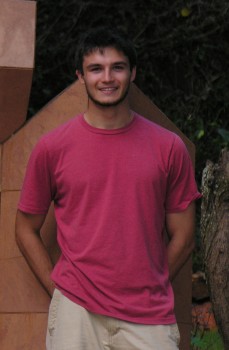Treating the HIV/AIDS Pandemic with More than Medicine

Details
Biology major Chris Gardner '15 is working in Jinja, Uganda this summer as a medical lab technician for The AIDS Support Organization (TASO), an indigenous NGO that provides an array of HIV and AIDS prevention, testing, counseling, and treatment services. The self-designed internship is sponsored by Haverford's Center for Peace and Global Citizenship.
Gardner has worked in biological research labs the past two summers but this is his first time volunteering on the clinical side of medicine. His work has provided opportunities to learn skills that are usually not taught in the United States until medical school, such as drawing blood and testing for HIV, TB, and malaria. When not in the lab, Gardner has supported counselors during their meetings with patients.
Though Gardner is providing valuable medical assistance, he says that HIV prevalence is not just a medical issue—it is determined by cultural, political, and economic factors as well. Consequently, his internship involves learning about the“structural” violence that facilitates the spread of the disease, and he spends much of his time talking with locals about systems that affect the prevention and treatment of HIV. One topic of conversation has been the Uganda Anti-Homosexuality Act, which was signed into law in February. Though homosexuality was already illegal in the country, the new law significantly increases the criminal penalties for homosexual behavior. In protest, the U.S., Norway, Sweden, and the World Bank have withdrawn funds from the country. Gardner predicts that these developments will significantly affect the ability of NGOs like TASO to stay in operation, since around two-thirds of the country's HIV funding comes from international donors.“Learning what the government has been doing has gotten me fired up to publicize the problems and means for improvement,” he says.
To read more about Gardner and his experiences in Uganda, you can follow his personal blog.
—Sam Fox '14



